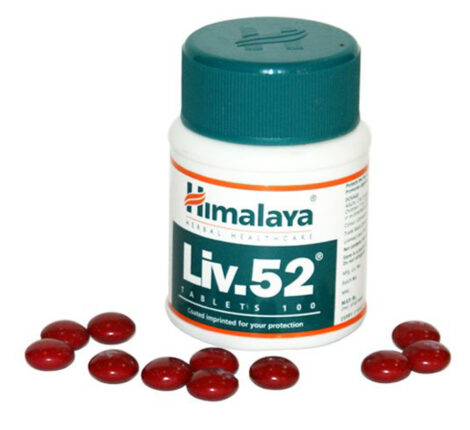The co-relation of domain names and trademarks
Trademarks:
A trademark is any sign that individualizes the goods of a given enterprise and distinguishes them from the goods of its competitors. A trademark is a type of intellectual property and typically a name, image, design, symbol, or a combination of these elements.
Domain Names:
Domain names are a descriptive format for Internet Protocol addresses and are commonly used to find websites. A domain name is the online ID of a particular individual, entity, or organization. The domain name is the institution’s online address, leading to the page the domain owner wants to publish when they access the domain. Merchants and businesses typically use their business name or trade name as their online ID or domain name when doing business. This is a permanent address that can be accessed from anywhere globally, regardless of the registrant’s location. In this way, it gives your online identity a global presence. Every website has a domain name that acts as an address to access the website. Domain names usually follow with ‘.com’,’.org’,’.net’.
Registration of domain names as trademarks:
A domain name qualifies as a trademark if it is distinctive and unique and the owner of the domain name was the first user. Domain names may be registered as a trademark upon fulfilling all of the situations which can be required to be registered as a trademark.
ICANN provides a list of approved registrars. The applicant will need to pay a fee, which is assessed yearly, and provide contact information. Once registered, the domain name owner has the exclusive right to use the domain address, but this right alone does not prohibit others from using the name for a business or product.
In Satyam Infoway Ltd. vs. Siffynet Solutions[1], the Supreme Court was asked to rule on whether domain names are identifiable as intellectual property, such as trademarks. According to the court, the original role of a domain name was without a doubt to offer an address for computers on the internet. However, the internet has evolved from a simple means of communication to a mode of conducting business. As commercial activity on the internet grows, a domain name is often utilized as a business identifier. As a result, the domain name not only functions as an online address, but it also identifies the unique internet site and distinguishes specific businesses or services of different firms. As a result, a domain name must be used as an address. The domain name not only serves as an online address, but it also identifies the unique internet site and differentiates specific businesses or services of different firms. As a result, a domain name as an address must be peculiar and unique, and when a domain name is used in connection with a business, the importance of preserving a distinct identity becomes vital. Domain names have grown increasingly valuable as more commercial organisations trade or advertise their existence on the web, and the potential for conflict is great.
Protection of Domain names:
Domain names as trademarks are registered and protected at the global level by only one organization, Internet Corporation for Assigned Names and Numbers, and national and international protection under directly concerned national Trademark laws and various International Trademark Treaties around the world.
Domain names in India may be awarded trademark or service mark protection under the terms of the Trademarks Act, 1999 (hereinafter referred to as “the Act”), provided that the domain name meets all requirements for valid registration under the Act (as enumerated above). Once registered, the registered proprietor of a domain name will have the same legitimate rights and powers as the owners of registered trademarks. In case of infringement of registered domain name, will be held liable under section 29 of Indian Trademark Act. If the owner is not registered, still the prior user, then protection is available for the prior user.
Cybersquatting is a practice in which fraudulent organizations utilize well-established organizations’ Internet domains to gain from their goodwill. The names or other distinguishing markers of the fraudulent entities are frequently used without the clear authority of the entity to which the name belongs. The fraudulent entities attempt to sell the Internet domain with the registered trademark to the entity whose name it is in the expectation of profiting.
Also read: Theft of Adobe Originality – Delhi High Court grants ex-parte injunction in favor of Adobe
Yahoo! Inc. v/s Akash Arora and Ors.[2]
The defendant was found guilty of attempting to use the domain name (yahooindia.com) for Internet-related services that resembled Yahoo! Inc’s prominent search engine domain name (yahoo.com). The court observed that when a party attempts to pass itself off as another well-known entity, the degree of resemblance of the marks is normally evaluated, as there is a high likelihood of two names being quite similar. When both domain names were examined, it was discovered that there was a considerable risk of an Internet user becoming confused and mislead into believing that both domain names belonged to the same authority, despite the fact that they belonged to two distinct authorities.
Adobe Inc. v/s Namase Patel & Ors.[3]
The Delhi High Court has issued an earlier injunction in favour of ADOBE in a trademark infringement case against defendant who had registered the domain name ‘www.addobe.com’ and ‘www.adobee.com’ in respect of computer software and other IT related items. services. The court ruled that the plaintiff had committed the first offense and as a result, a previous sentence was issued against the defendant. The court also ordered the defendant to refrain from using Infringing Domains ‘www.addobe.com’ and ‘www.adobee.com’ and to discontinue registering any domain name, including the plaintiff’s trademark ‘ADOBE’ or ‘PHOTOSHOP or ‘SPARK’ or any other alternative.
Also read: Domain name dispute: Okaytatabyebye for MakeMyTrip as WIPO rules in TATA’s favor
Conclusion:
Domain names and trademarks have become a broad part of growing e-commerce business activities. Domain names indicate the existence of a company on the Internet and are now considered a valuable corporate asset. The domain name concept is an extended version of a trademark and has all the same characteristics found in a trademark.
[3] CS (COMM) 159/2022;
[2] Yahoo! Inc v. Akash Arora and others,78 (1999) DLT 285
[1] AIR 2004 SC 3540
References:
1. https://www.intepat.com/blog/domain/relationship-trademarks-domain-names/
2. https://lawcirca.com/satyam-infoway-ltd-vs-sifynet-solutions-pvt-ltd-air-2004-sc-3540/
3. https://zestip.com/delhi-high-court-grants-ex-parte-injunction-in-favour-of-adobe/
– Shobhit Rajput, (Intern) ICFAI Law School, Dehradun
Disclaimer: This article is intended to provide general guidance to the subject matter. It does not contain legal advice. For any specific advice/corrections, write to [email protected]
© ZEST IP




